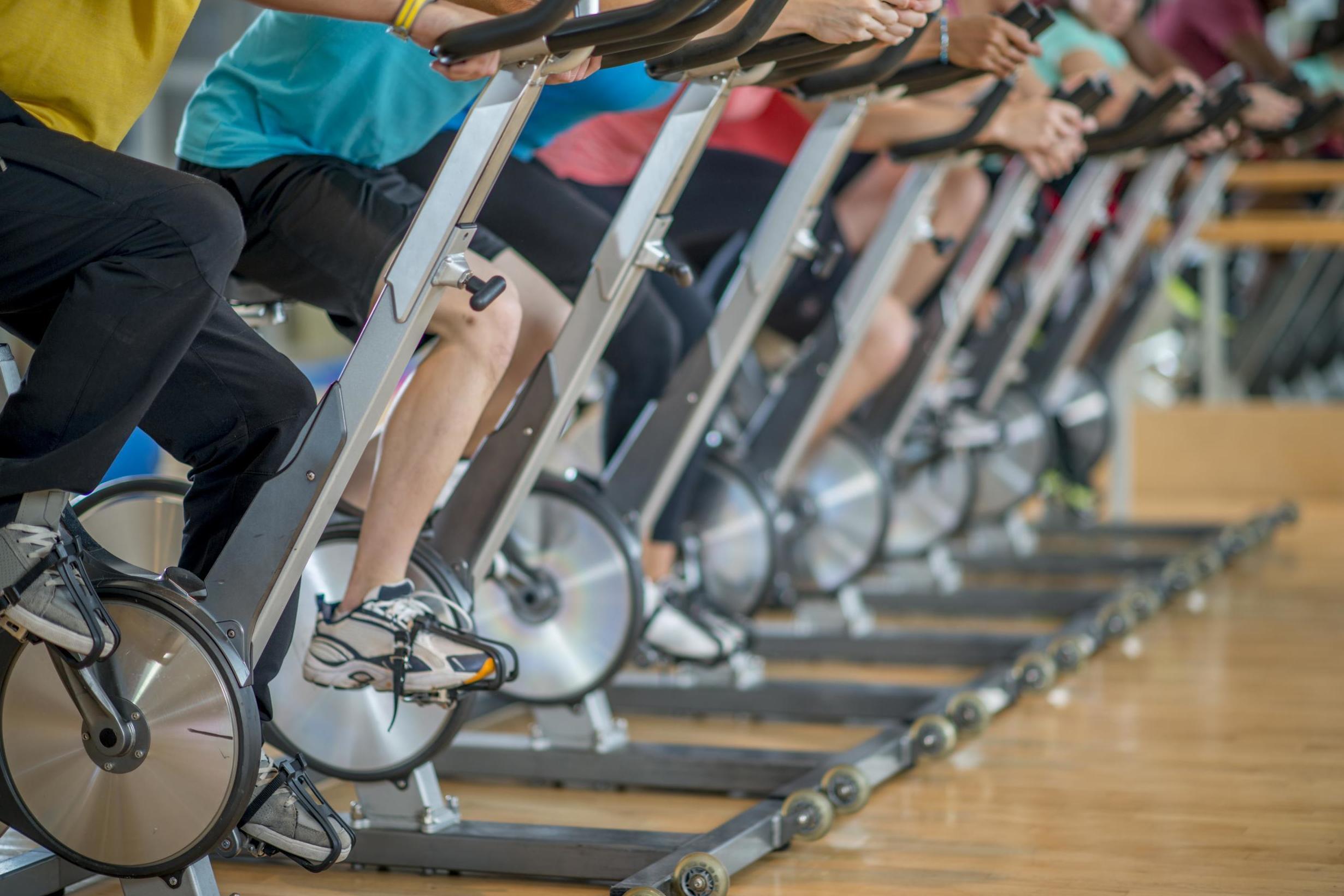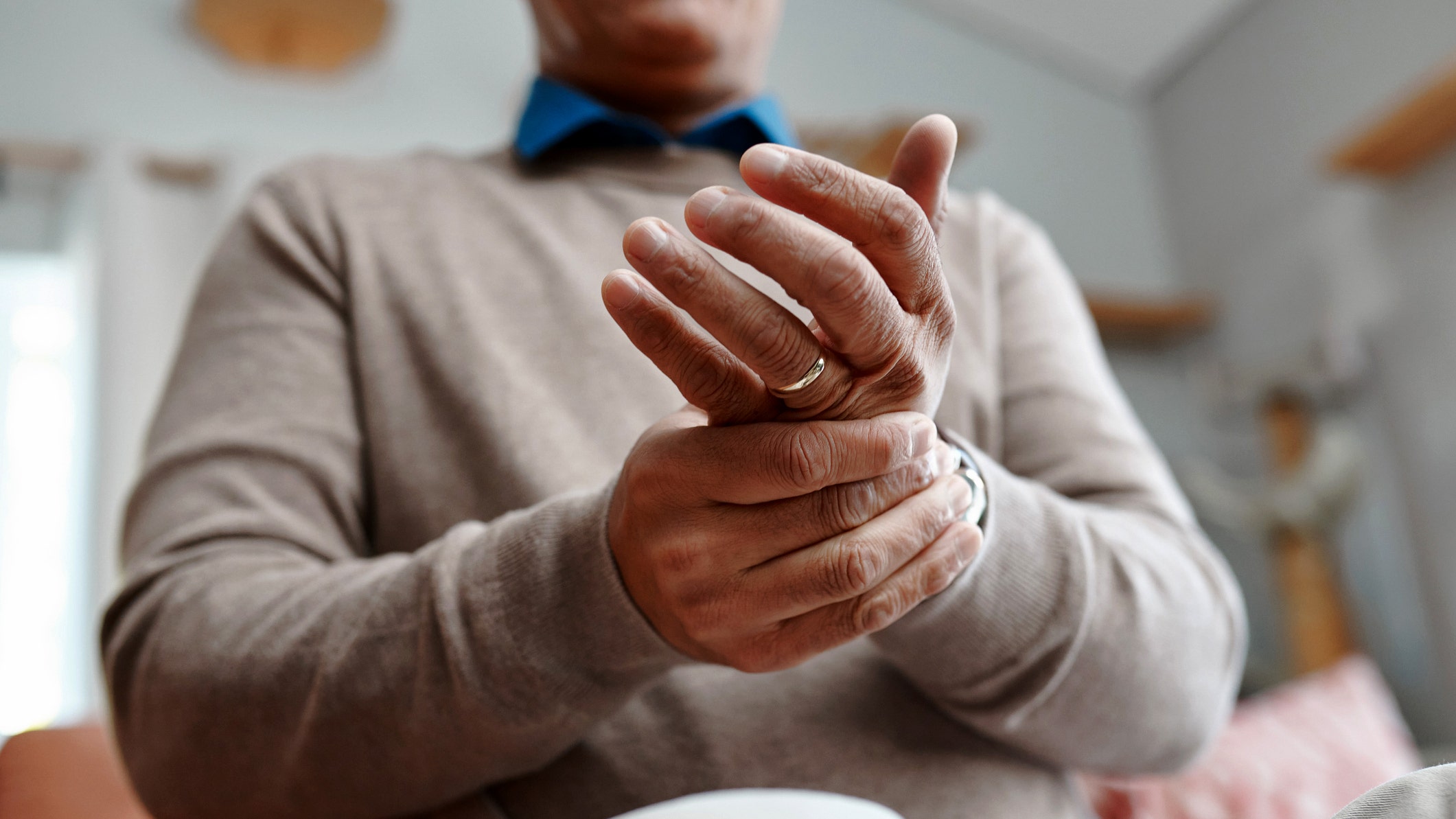The exercise class that is ‘better than physio’ for some patients

Weekly group spin classes could be more beneficial and cost-effective than physiotherapy for people with a common hip problem, new research suggests.
Hip osteoarthritis occurs when the cartilage in the hip breaks down, causing pain and stiffness, and is estimated to affect about 3.2 million people in the UK.
Experts from Bournemouth University and University Hospitals Dorset (UHD) compared standard physiotherapy care with an innovative eight-week exercise and education programme known as Chain (cycling against hip pain).
Published in The Lancet Rheumatology, the study involved 211 participants, divided equally between the two treatment approaches.
The Chain group attended weekly education sessions from a physiotherapist, lasting around 30 minutes, followed by a 30-minute session of static cycling led by a gym instructor.

The effects of treatment on patients were measured by the Hip Disability and Osteoarthritis Outcome Score (HOOS) activities of daily living (ADL) subscale, which assesses how hip problems affect various daily activities.
The study found that those who completed the cycling classes had a “statistically significant improvement in patient-reported function after treatment”.
Researchers said the method “showed superior outcomes compared with usual physiotherapy care, and the feasibility of delivering a low-cost, community-based intervention within the NHS was shown”.
However, they stress that the “longer-term benefits and broader generalisability warrant further investigation”.
Tom Wainwright, a professor of orthopaedics at Bournemouth University and a physiotherapist at UHD, said that for “the time it takes to treat one patient using standard physiotherapy, we can treat multiple patients in a group session and provide them with better outcomes”.
“This has proved to be more cost-effective than standard treatment and so we hope this will contribute to reducing NHS waiting times for physiotherapy treatment in the future.”
Symptoms of osteoarthritis
NHS
The main symptoms of osteoarthritis are pain and stiffness in your joints, which can make it difficult to move and do certain activities.
Other symptoms you or your doctor may notice include:
- joint tenderness
- increased pain and stiffness when you have not moved your joints for a while
- joints appearing slightly larger or more “knobbly” than usual
- a grating or crackling sound or sensation in your joints
- limited range of movement in your joints
- weakness and muscle wasting (loss of muscle bulk)
Professor Rob Middleton, of Bournemouth University and an orthopaedic surgeon at UHD, said: “Hip replacements cost the NHS over £6,000 per patient, so avoiding surgery for hip problems reduces the burden on the NHS, saves money, and provides better outcomes for patients.
“Now with this new study, we can also see the potential for static cycling to save further money for the NHS by bringing down waiting lists for physiotherapy.”
Dr Peter Wilson, chief medical officer at UHD, said: “We are an ageing population and increasingly we are seeing more patients with osteoarthritis that need either surgery or physiotherapy.
“Finding alternative ways to treat these patients could help reduce waiting times and the financial demand on NHS services.”
The Chain intervention was first launched in 2013 and patients who wish to take part are referred to UHD from their GP.
To bolster access on a national level, experts from Bournemouth University have developed a virtual course on their education app, allowing people to follow the programme from their home or local gym.
[title_words_as_hashtags



